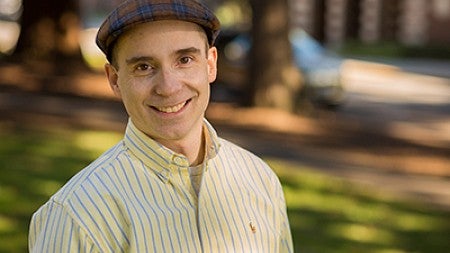
History and Clark Honors College
kevhat@uoregon.edu | 541-346-1977
Courses: HC444 Decolonizing Research: Northern Paiute History Project; HIST 211 Native Nations/Reacting to the Past
In my classes you will:
- Make connections to lived experiences and real-world challenges.
- Understand what it means to be at a research university with the chance to gain new knowledge.
I was invited into the Teaching Academy because:
- I participated in the UO Summer Teaching Institute.
In what ways are you working to make your teaching inclusive?
In the course titled Decolonizing Research: The Northern Paiute History Project we observe a protocol for shared decision-making about research agendas, modes of inquiry, categories of analysis, dissemination of knowledge, and philosophies of scholarship with the tribal community partners. These research protocols confront the dichotomy between the authorized “academic expert” and the “subordinated subject” and center the indigenous knowledge communities in the teaching and research. This course invites students to participate in an “apprenticeship” in the historian’s craft designed to offer an inquiry-based intellectual space fostering discovery, curiosity, empathy, and reciprocity. The group dialogues generate new questions such as how to incorporate the multiple viewpoints and truths presented from tribal members, and how to negotiate differences and contradictions between documentary primary sources and oral history testimony and living memory. The course unpacks these questions throughout the term by providing guidance on how to critically examine and construct meaning from often divergent historical evidence--especially for the Northern Paiute history that has been historically misrepresented in non-Native secondary sources.
What do you do in terms of professional engagement with the teaching and learning culture on campus or nationally?
We continually engage the scholarship of decolonizing research and pedagogy through inviting scholars to campus; hosting them in our courses; presenting and attending academic conferences with tribal community partners and undergraduate students; and incorporating this scholarship into our courses in explicit metacognitive exercises with our students. We have presented on the pedagogy and outcomes of the course with students and tribal partners at national, regional, and local conferences, including the American Historical Association, Western Social Science Association, Northwest Archivists Association, Oregon Heritage Summit, Alternative Sovereignties Conference, Climate Change and Indigenous Peoples Conference, and the UO Undergraduate Research Symposium.
In what ways was your teaching in this course research-led—informed by research on how students learn and inflected by UO's research mission?
Ultimately, our courses center students in tribal relations and tribal communities to position them ethically, methodologically, epistemologically, and metacognitively to perform original research and create new knowledge in direct and continuous collaboration and mentorship with tribal community partners. Prior to beginning their research students receive training in research ethics and protocols for working with indigenous communities. They also critically engage an extensive body of scholarship on decolonizing research. One specific learning outcome encourages students to practice Sam Wineburg’s (Historical Thinking and Other Unnatural Acts) concept of “metadiscourse” in their writing. This approach replaces a more traditional western mode of establishing a third-person, omniscient-narrator format that distances the author from the subject, and typically shields the reader from the ethics, methods, and relationships underpinning knowledge creation. The courses have also served as a basis for advising multiple students’ Clark Honors College and History Department Honors theses.
Who or what made you want to be a teacher?
My high school European History teacher, Mr. Jeffcott. Although I had always enjoyed "history" in the forms of family stories and travel, my experience with being taught history in K-12 remained limited to a very traditional direct instruction model of rote memorization and recitation of factual information deemed important by standards committee. One year I "learned" history by performing weekly Friday "exams" that consisted of filling in specific words that had been obscured with white-out on photocopied pages of our US history text book. Mr. Jeffcott was the first history instructor that every pulled back the curtain so to speak on the craft of history. He introduced us to what he called a "history laboratory" where we would learn the methods practices by historians. This approach disoriented me and many of peers at first. Although we understood the concept of the "scientific method" charts on our science classroom walls that guided our hands-on experiments and lab reports, we struggled applying the idea of methods to history. I had never imagined the "process" of history or how historians actually performed their research. On the first day of class Mr. Jeffcott had us "shelve" our district-issued textbooks in his classroom book case and pronounced that they would be available for reference purposes, but that we instead by learning history by actually practicing and doing it in his class. Throughout the year he presented us with lesson plans centered on primary sources he had gathered, pre-internet, that included journals, diaries, correspondence, court documents, government records, maps, and photographs. We were challenged with posing historical questions, formulating theses, interpreting sources, and analyzing and synthesizing evidence into argumentative papers. We learned how to apply theory, logic, and reasoning to interrogating primary sources. He also had a theatrical bent and periodically appeared in class in full garb as a particular historical actor we were reading and studying so we could "engage" him in a historically conversation. Overall, it was a transformational experience for me as a learner and opened my mind to history as a professional craft, a way of knowing, and way of thinking. Irrespective of history, it also inspired an intellectual curiosity and sense of wonder in discovery that I hope to pass on to my students.
